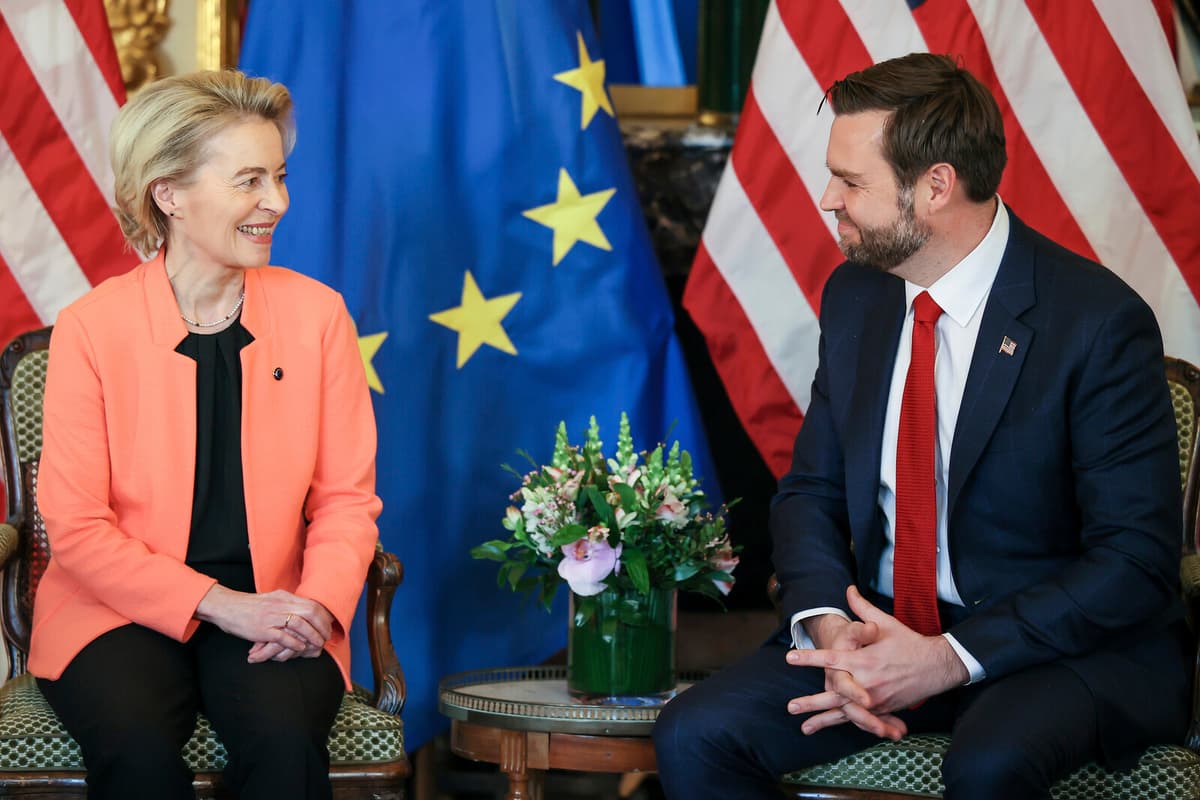The EU base and the new US Vice President JD Vance sat down together in connection with this week's summit on AI issues in Paris.
Despite the threat of a trade war, they maintained a positive tone.
The Trump administration has been very clear that we care a lot about Europe. We see a lot of economic relationships that we can build on with Europe. We also want to ensure that we engage in a security partnership that is good for both Europe and the US, said Vance in some brief public comments before the meeting.
"Thanks for a good discussion about the challenges we share as allies", von der Leyen greeted afterwards via X – without going into whether and how they had also talked about tariffs.
"Tariffs are taxes"
The meeting took place after both von der Leyen and her trade commissioner Maros Sefcovic had promised European responses to the steel tariffs announced by Trump on Monday.
We are currently reviewing what was announced last night and will respond with decisive and proportionate countermeasures. We will protect our workers, our companies, and our consumers, said Sefcovic in a speech to the EU Parliament in Strasbourg.
The EU describes the US actions as a loss for both sides.
We deeply regret these decisions and announcements (from Trump). By introducing tariffs, the US will tax its own citizens, increase costs for its own companies, and increase inflation, said Sefcovic.
"Tariffs are taxes: bad for companies, even worse for consumers", von der Leyen wrote in a press release.
No details
Exact details on how the EU plans to respond have not yet been presented and, according to the EU Commission, will not be presented until "the time is right". Among other things, the concrete decisions from the US are still awaited.
We're saying nothing today, said Olof Gill, the Commission's spokesperson on trade issues at a press conference in Brussels.
The EU member states are expected to discuss the situation in a digital meeting on Wednesday. According to Olof Gill, the Commission is in "constant contact" with the countries – although he also emphasized that it is the EU, not the countries' governments, that is handling the issue.
Member states cannot negotiate on their own, said Gill.






